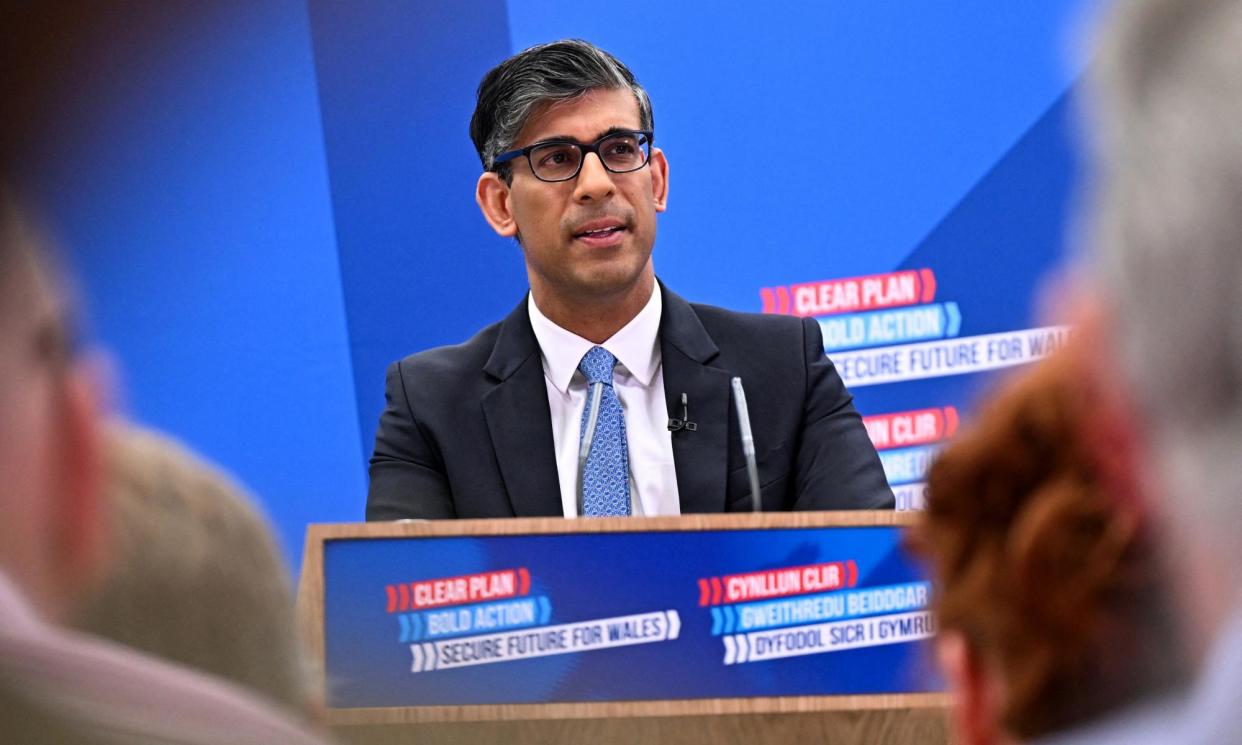UK election betting scandal: all you need to know about the world of political wagers

The furore around a flurry of bets placed on the date of the general election, before Rishi Sunak announced it, has shone a rare spotlight on a niche area of the gambling world. The scandal began with revelations in the Guardian about a wager placed by one of Sunak’s political aides, Craig Williams.
Three other people close to the prime minister are are being looked into by the Gambling Commission, in what has become a snowballing crisis for the Tories. But how does political betting work, how popular is it and how can inside information allegedly be used to beat the bookies?
Is political betting big business?
In the grand scheme of the British gambling industry, it’s small, but it rises when big events take place. The amount wagered by punters on sport alone last year was £25bn. Political betting is so much smaller that the Gambling Commission doesn’t even provide figures on it. But it has grown fast. In 1997, bookmakers estimated that up to £10m would be bet on the general election. One political betting expert, who did not want to be named, said a UK election would be worth multiples of that now, in the “tens of millions”.
While sports betting is still the biggest cash cow by far, individual events that attract global attention can be huge business. The 2020 presidential election was among the top 10 betting events in world history, a market worth £1.7bn on the Betfair exchange alone.
What can you bet on?
Bookmakers have capitalised on punters’ growing appetite for political betting. Several well-known bookmakers offer a market on the results for all 650 constituencies up for grabs in the general election, as well as for political events around the world. Betfair offers markets on anything from President Joe Biden being impeached to the result of the election in Australia’s Northern Territory.
“Political betting is quite nerdy and nice, and the people who are into it are really into it,” said Neil Channing, a professional gambler and co-host of political betting podcast Bet the House, whose latest episode was titled Selling Jeremy Hunt.
On some specialist sites, such as Smarkets, bets can get even more niche. Its exchange offered markets on the next country to leave the EU, whether the UK will have a referendum on the monarchy before 2024 and when, not if, GB News will stop broadcasting.
Do betting odds predict politics?
To some extent. While polls gauge who people would prefer to win, changes in betting markets indicate who they think actually will. And there is some logic in the wisdom of crowds.
However, the bookies can get it badly wrong. In the 2016 US presidential election race, Paddy Power Betfair was so convinced Hillary Clinton would win that it paid out £800,000 ahead of the result. Donald Trump’s victory cost the company £5m in total.
Punters make costly errors of judgment too. In 2017, a 24-year-old graduate from Norwich put £10,000 on Jeremy Corbyn leading Labour to electoral glory. He could have won £182,000 but lost the lot.
Sometimes bets appear to be part of a stunt.
One expert recalls a flood of bets on a London mayoral candidate who had 0% chance. Thousands upon thousands were poured on him, driving his odds down to 5/1. “We assume it was just to get publicity. It was just a gift, free money, to all the serious gamblers who could lay [take the other end of] this stupid bet on Betfair,” they said.
Is political betting open to cheating?
Betting is fundamentally about asymmetry of information. The very few people who profit from betting – as well as the bookmakers themselves, of course – do well because they know more than the rest of the market does.
However, there is a difference between having more information and knowing the outcome of an event.
When it comes to the general election date, a small group of people would have known that in advance and could have used that information to bet. In theory, this could fall under the criminal offence of cheating under the Gambling Act 2005. The Gambling Commission has the power to prosecute suspected offenders, although it barely ever has. Since its establishment in 2005, the commission has prosecuted one case of cheating, involving a man who had drugged dogs to fix greyhound races.
What is the bookmakers’ role?
Bookies don’t like to lose. Most will screen customers they know are involved in sports, ranging from stablehands to racehorse owners and professional footballers. Big operators also carry lists of politically exposed persons (Peps), whose betting activity might be flagged up automatically. Some also have a dedicated politics “trader” who will calculate odds on political events and monitor bets on them.
If the bookie suspects cheating, they must pass this information to the Gambling Commission under the terms of their licence to operate in Great Britain. In recent years, the Gambling Commission has fined operators who failed to monitor Peps properly.

 Yahoo News
Yahoo News 
